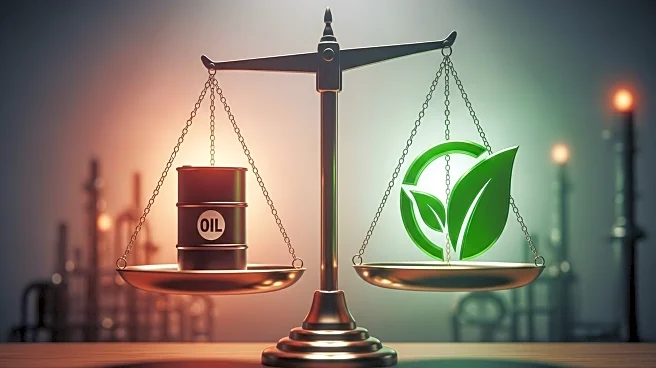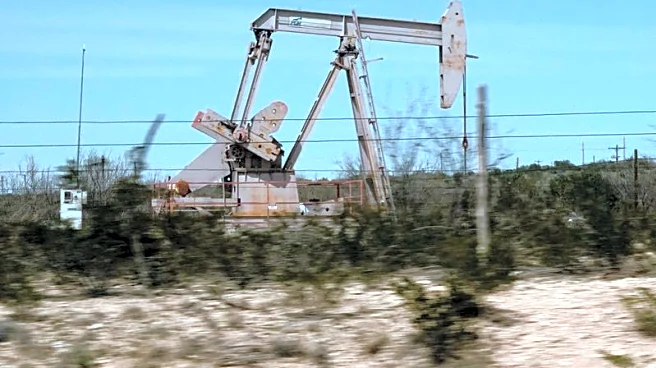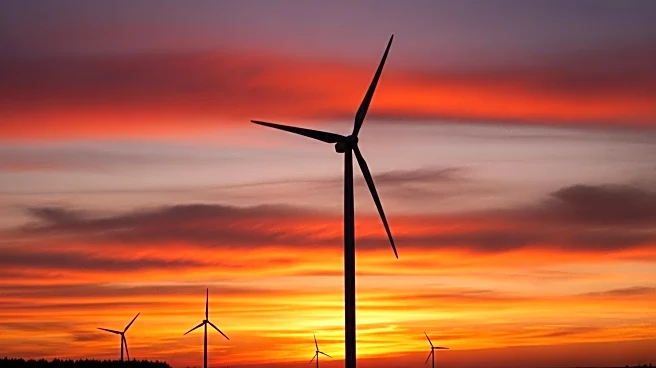What's Happening?
OPEC has released a report indicating that the global oil supply is expected to closely match demand in 2026, as the OPEC+ group plans to increase production. This marks a shift from previous forecasts that predicted a supply shortfall. The report highlights that OPEC+ raised crude output by 630,000 barrels per day in September, reaching 43.05 million barrels per day. The organization maintains its forecast for global oil demand to rise by 1.3 million barrels per day this year and at a slightly faster rate in 2026. The report suggests a potential supply deficit of 50,000 barrels per day if OPEC+ continues pumping at the current rate. This adjustment comes amid concerns of oversupply, which have affected oil prices.
Why It's Important?
The increase in production by OPEC+ and the revised forecast for a smaller supply deficit in 2026 have significant implications for global oil markets. The potential oversupply could lead to lower oil prices, impacting revenues for oil-producing countries and companies. However, the report also suggests a tighter oil market in the medium to longer term, which could stabilize prices. The U.S. energy sector, including major companies like ExxonMobil, may face challenges in adjusting to these market dynamics. Additionally, the shift in OPEC's outlook could influence energy policy decisions and investment strategies in the U.S. and other countries.
What's Next?
The International Energy Agency (IEA) is expected to update its forecasts soon, which may provide further insights into the global oil market dynamics. Stakeholders, including U.S. energy companies and policymakers, will likely monitor these developments closely to assess the impact on domestic energy production and consumption. The potential for oversupply may prompt discussions on production adjustments and strategic reserves to mitigate market volatility.
Beyond the Headlines
The evolving oil market landscape underscores the importance of diversifying energy sources and investing in renewable energy technologies. As OPEC+ adjusts its production strategies, countries reliant on oil imports may explore alternative energy solutions to reduce dependency on volatile oil markets. This shift could accelerate the transition towards cleaner energy and influence global energy policies.












